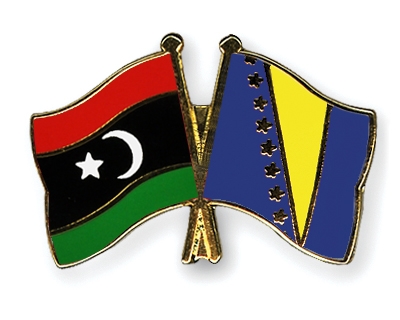Two leading state Libyan banks, Jumhouria and the National Commercial Bank (NCB), have announced increased cash withdrawal limits during the month of Ramadan.
Jumhouria Bank announced raising the ceiling of daily withdrawals to 5,000 dinars from within all its branches, and withdrawals via ATMs to 1,000 dinars daily, 5,000 weekly, and 10,000 dinars per month. It also raised the daily purchase ceiling through points of sale (POS) to 3,000 dinars per day and 10,000 dinars per month.
The ceiling for the Eva government allowance card for housewives and girls, and for the student card was set at 1,800 dinars per day. Credit card withdrawals were set at a ceiling of 1,000 dinars per day and 10,000 dinars per month.
Commenting exclusively to Libya Herald on this announcement, the Director of the Media Office at Jumhouria Bank, Mohamed Al-Naili, said this increase in cash withdrawal limits came because of the availability of good cash supplies in commercial banks in general, and in Jumhouria Bank specifically, together with good management from the Central Bank of Libya in distribution of cash to all Libyan banks.
Jumhouria bank has branches in every Libyan city
Al-Naili added that Jumhouria Bank, the largest bank in Libya, owns a network of branches that is the most widespread in Libya, and it is considered the only Libyan bank in which there is no Libyan city, regardless of its location and population density, that Jumhouria Bank does not have a branch in it.
He explained that the management of the bank, in cooperation with the departments of the regional branches, determines the volume of liquidity required for each branch and sends it to all branches throughout the country.
Reasons for raising cash withdrawal limits now?
Explaining the reasons for raising the withdrawals ceilings from branches or ATMs, Al-Naili said that at the present time there is a good volume of local cash within the banking system, whether from the deposits of large customers or from requests to buy foreign currency from small merchants or citizens for personal purposes.
Local banks cooperating to share cash supplies
In addition, there is coordination between banks regarding local cash dispatches, as cash liquidity is available in some banks in a large way, which necessitates them to send their surplus to other banks. This has increased the volume of local currency supply between banks, and the Central Bank of Libya, through the Cash and Banking Control Department, plays a good role in providing and distributing liquidity to all banks Libyan.
Dinar devaluation two years ago created liquidity: NCB chairman Akkari
In the same context, the state National Commercial Bank (NCB) raised the ceiling for its cash withdrawals via ATMs to 1,000 dinars per day, 2,000 dinars per week, and 8,000 dinars per month.
Commenting exclusively to Libya Herald on this, the Chairman of NCB, Musbah Al-Akkari, said that the state of good stability in the Libyan banking sector and the step to devalue the Libyan dinar two years ago led to the relative availability of liquidity in a commercial banks. He said the devaluation was a courageous national action that was supervised by a specialized committee of banking expertise (the CBL Dinar Devaluation Committee of which Akkari is a member).
Surges in demand for cash cause crowding and cash shortages
Al-Akkari pointed to the fluctuation that sometimes occurs in the provision of local cash to customers, which he confirmed is most often due to the high demand for local liquidity, especially on religious occasions such as the month of Ramadan. At these peak demand times cash withdrawals increase, whether directly from bank branches or withdrawal machines, causing crowding and cash shortages in some banks and their branches.
Call on public to use cards and mobile apps more
The NCB chairman called on citizens to rely more on credit and debit cards to purchase their needs and to obtain various services, as they are safer and dispense with queuing in front of banks for hours sometimes to withdraw cash. He said banking services with technical solutions through mobile phone applications can be used in all different commercial operations such as selling and buy.
Regarding ATMs, Al-Akkari noted that his National Commercial Bank provides hundreds of ATMs in most of its branches distributed in most Libyan cities, through which cash is available daily.










